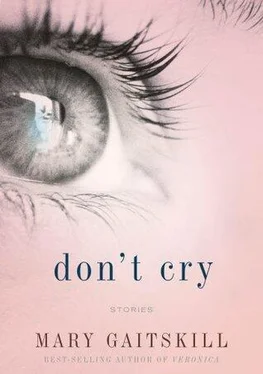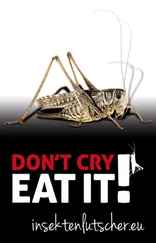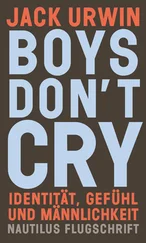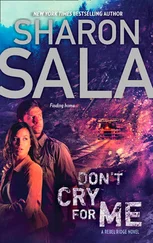“Really, it's not.”
On the way home, they rented a comedy about a dysfunctional family and watched it while eating the sandwiches from plates on their laps. Then he put things in the dishwasher while she talked to Caleb on the upstairs phone. When he turned off the water, he could still hear her voice through the ceiling. He went into the living room and finished up the rest of the artichoke hearts.
The path opened onto a small meadow of pale grasses with a single tree standing in its middle. It was a large tree, with branches stretched in all directions; roughly half the branches were alive, with flourishing leaves and rich-colored bark, but the other half looked dead — blackened, dry, naked of bark or leaves.
“Want to hear how he explained himself?” asked Joseph. “Ruskin, that is.”
“Sure.”
“He said, ‘It was not made to excite desire.’ Meaning his wife's pussy. Or maybe her breasts. Or maybe just her body, period.”
She was in surgery for fourteen hours. She came home with plastic tubing attached to the wounds in her stomach and chest, tubes that functioned as drains, collecting the pus in detachable plastic bulbs. He could see the tubes under her clothes; he was aware that she took the bulbs off, emptied them of pus, put them back on. While he was with her, he was not squeamish about the tubes and bulbs— if she'd asked, he would have detached, emptied, and replaced the bulbs himself. He didn't mind the new breast made out of stomach either. He scarcely thought of it, and when he did, he was glad it was there, if it made his mom feel better. He couldn't help feeling superior to Caleb, who obviously squirmed even to hear about it on the phone.
“ ‘It was not made to excite desire,’ “ repeated Kevin.
“I guess it was a little too human,” said Joseph.
“A little too old, it sounds like.”
“It amounts to the same thing,” said Joseph. “Anyway, public opinion was overwhelmingly on her side. She won the case and married Ruskin's protégé, Millais. They had eight kids.”
“Something poignant about the whole situation,” said Kevin. “For both of them.”
In Westchester, it was okay But the first night he got back to Albany, he had a nightmare in which his mother's breast was a piece of gnawed cake. He woke from the dream feeling depressed. He didn't think his mother was going to die. But it was weird to think that men in surgical scrubs had labored to take some of her stomach off and put it where her breast had been, to think of her sleeping with plastic drains sewn into her soft, gowned body, of the bulbs pressing against her when she turned. In the past, they would've just cut the breast off and left it that way. Deeper in the past, she just would've died.
He ran his hand across the rough foliage growing beside them; it stirred in his wake.
“How would you describe this?” he asked.
“Why would you describe it?” replied Kevin.
“Feelings,” said Joseph. A dragonfly lighted on a wildflower and made it bob. “It would bring feelings into the story.” The dragon rose off the bobbing flower and lilted in the air.
“Feelings come from people,” said Kevin. “Not bushes. Bushes don't have feelings.”
“I know bushes don't have feelings.” He wasn't actually sure that they didn't, but he wasn't going to say that to Kevin. “It's the character who sees the bushes and has feelings about them.”
“Sure, that's fine,” said Kevin. “But think of Don Watson. His stories are filled with emotion, but it comes from what the people in the story are doing, an engagement with the human world. They come from the work he does with Israeli and Palestinian writers who deal with the psychotic shit that's going on there. Not from bushes.”
Emotion was coming off Kevin again; Joseph wondered why Probably there was no why. It was just Kevin's nature to always be stirred and needing something to butt up against. It was obnoxious, but even so, he respected the feeling coming off his friend, wanted to stand with it. That was his nature.
Abruptly, the path steepened. They both fell silent and began to hike in earnest.
When he returned to the university, he decided to write a story about a young man whose mother had cancer. The young man would be some kind of business executive, maybe in advertising, or an architect just starting out. He would not have time to go home and care for his mother, and his do-gooder brother would be giving him grief about it. Over the course of the story, his deeper feelings would be uncovered.
He went to Janice's office to discuss his story idea. He told her that his mother had cancer; he told her about his father and his brother and the way his mother had been about the ham. She listened and her face grew soft, much softer than it was in class. Her receptive silence felt to him like touch.
But when he told her that he wanted to write about his experience for his next workshop story, she spoke adamantly “Don't do that, Joseph,” she said. “It's such a vulnerable time. More than you know I'm sure no one would be deliberately cruel about your story. But it's too raw now for public discussion.” Again, he felt touched by her eyes, even the signs of age around them, the soft sagging of the lids.
“I don't think I can write about anything else,” he said.
“It's fine to write it,” she said. “But don't turn it in to the workshop. Please. Turn it in to me and we can discuss it privately Workshop something old, just to keep up appearances.”
And so he workshopped something he didn't care about and took the real story to Janice in various pieces and drafts.
They had been hiking for nearly an hour when the path forked; they argued about which way to take. Finally, they decided that both ways would come to the same end and they split up. Joseph intuitively chose the smaller trail, which quickly proved steep and jumbled with loose rock.
In the story, it was revealed that the architect who was just starting out was not merely indifferent to his mother. He was angry at her. He did not even fully believe that she had cancer. She had a history of acting out and hypochondria and had ruined his tenth birthday party by saying she couldn't breathe, insisting that their father break up the party so that he could take her to the hospital. He was also angry at his brother, who was still living at home and didn't have to make any sacrifices to look after her, angry at the way this brother had bought into her self-mythologizing — the myth of the beautiful woman who could've been an actress if she hadn't been stunted by early marriage and children.
The trail became increasingly chaotic. There were flat sunbaked outcrops with cool, wet fissures full of mashed pine needles. Bushes, mosses, and little trees grew out of the fissures, pushing their way out of huge rocks. Smaller, broken chunks of rock wobbled under his feet, forcing him to slow his pace; some were dry, some slippery with mud.
In real life, there were two positive lymph nodes in his mother's body, and she needed chemo. In the story, she needed chemo, too. In real life, she lost her hair; in the story, she lost her hair, too. In the story, she screamed and cried about losing her hair. In real life, she made jokes and shopped for wigs with her friends. In the story the architect finally came home, and was forced to confront his angry brother. In real life, Caleb came home and delighted their mother by acting out scenes from Glengarry Glen Ross. In the story, the dutiful son was the favorite. In real life, it was Caleb.
He came suddenly close to a coiled snake and, stepping away from it too fast, stumbled and fell, banging his knees and hands. Too quickly, he clawed for purchase and cut his palm on a rock. The snake slithered away. He cursed as he stood.
Читать дальше












